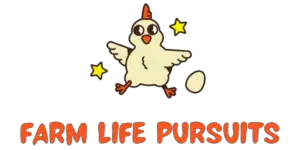Ducks can pose a threat to the ecosystem by competing with native species for resources. Their waste can contribute to pollution in water bodies. In urban areas, ducks may cause damage to property and landscaping. Additionally, some duck species can carry and spread diseases to other wildlife and even humans.
Curious about the true nature of ducks?
Prepare to uncover the hidden complexities behind these lovable birds as we explore the potential drawbacks, environmental impacts, and myth-busting truths that challenge our perceptions of them.
Table of Contents
Potential Drawbacks of Keeping Ducks as Pets
As adorable as ducks may seem, there are certain drawbacks to consider before welcoming them into your home.
Let’s take a closer look at the potential challenges that come with keeping ducks as pets.
1. Messiness and Waste Management
Ducks are notorious for their messy habits, often splashing water and scattering food around.
This can lead to constantly dirty living spaces and a need for frequent clean-ups.
Additionally, ducks produce a significant amount of waste, which can be challenging to manage, especially in smaller living areas.
2. Noise Levels
Contrary to the peaceful image often associated with ducks gliding on ponds, they can actually be quite noisy pets.
Some duck breeds are known to quack loudly and frequently, which may not be ideal for noise-sensitive individuals or those living in close quarters with neighbors.
3. Space Requirements
Ducks require adequate space to thrive and maintain their well-being.
They need access to water for swimming and cleaning, as well as a secure outdoor area to roam and forage.
Therefore, potential duck owners must be prepared to provide a suitable living environment that meets their space needs.
4. Health Concerns
Just like any pet, ducks are susceptible to various health issues that require proper care and attention.
For example, ducks are prone to infections such as duck viral enteritis and avian botulism.
Owners must be vigilant about their ducks’ health and seek veterinary care when necessary to ensure their well-being.
5. Legal Regulations
Before getting ducks as pets, it’s essential to check local regulations regarding owning ducks.
Some areas have restrictions on the types of animals allowed as pets or specific requirements for housing and caring for ducks.
Failure to comply with these regulations could lead to legal issues and fines.
while ducks can make charming and entertaining pets, it’s crucial to weigh the potential drawbacks mentioned above before deciding to bring them into your home.
By understanding and addressing these challenges, you can ensure a positive and fulfilling experience as a duck owner.
Stay tuned for more insights on the realities of keeping ducks as pets in the next section!
Issues with Duck Behavior – What You Need to Know
Ducks are often adored for their charming waddles and quacks, but there are some less-than-desirable aspects to their behavior.
Let’s delve into the darker side of these feathered friends.
Aggressive Behavior
Have you ever been chased by an angry duck in the park?
If so, you’re not alone.
Ducks are known to exhibit aggressive behavior, especially during mating season or when protecting their territory.
According to a study by the Wildlife Rescue League, male ducks can become particularly aggressive, pecking or chasing anything they perceive as a threat.
This behavior can be alarming, especially for children or pets in the vicinity.
Messy Eaters
When ducks eat, they don’t always have the best table manners.
They tend to make a mess, scattering food around their feeding area.
This can attract pests like rats and insects, leading to hygiene issues in parks and water bodies where ducks congregate.
In a survey conducted by the National Parks Service, park officials reported increased pest problems in areas frequented by ducks.
Environmental Impact
While ducks may seem harmless, they can have a significant impact on their environment.
Their waste, known as “duck droppings,” is high in nitrogen and phosphorus, which can lead to algal blooms and water pollution.
A case study by the Environmental Protection Agency found that excessive duck populations in certain areas contributed to poor water quality, affecting aquatic life and vegetation.
Nesting Habits
Ducks are known for their nesting habits, often choosing cozy spots near water bodies to build their nests.
While this may seem picturesque, it can lead to environmental disturbances.
The nesting process can trample vegetation and disturb other wildlife habitats.
Additionally, ducks may become territorial during nesting, leading to conflicts with other bird species.
while ducks may appear cute and harmless, it’s essential to be aware of the potential downsides of their behavior.
From aggression to environmental impact, these birds have a more complex nature than meets the eye.
Stay tuned for more insights on the challenges of dealing with ducks in urban and natural settings.
The Environmental Impact of Ducks – Considerations and Concerns
When we think of ducks, we often picture these charming waterfowl gliding gracefully across serene ponds or waddling cutely on land.
However, behind their adorable facade, there are certain environmental considerations and concerns associated with ducks that are worth exploring.
Water Contamination
One significant issue related to ducks is the potential for water contamination in bodies of water where they inhabit.
Ducks contribute to water pollution through their waste, which contains high levels of nitrogen and phosphorus.
These nutrients can lead to algal blooms and oxygen depletion, negatively impacting the aquatic ecosystem.
Destruction of Vegetation
Ducks are known for their foraging behavior, which involves feeding on vegetation in their surroundings.
While this is a natural part of their diet, overgrazing by ducks can result in the destruction of important aquatic vegetation.
This can disrupt the balance of the ecosystem and lead to habitat loss for other species.
Spread of Diseases
Ducks can serve as reservoirs for various diseases that can be transmitted to other wildlife, livestock, and even humans.
For example, ducks can be carriers of avian influenza, which poses a risk to both animal and human health.
The close interaction between ducks and other species increases the potential for disease transmission.
Displacement of Native Species
In certain regions, the introduction of non-native duck species can lead to the displacement of native waterfowl.
Non-native ducks may outcompete native species for resources such as food and nesting sites, causing a decline in local biodiversity.
This disruption to the natural ecosystem can have far-reaching consequences.
While ducks are undeniably fascinating creatures with their own unique charm, it’s important to recognize and address the environmental impact they can have.
By understanding the considerations and concerns associated with ducks, we can take steps to mitigate potential challenges and ensure a harmonious coexistence between these waterfowl and the ecosystem they are a part of.
Adverse Factors Associated with Ducks – Separating Myth from Reality
As much as ducks are adorable creatures, there are some misconceptions and negative aspects associated with them that are worth exploring.
Let’s dive into separating myth from reality when it comes to the adverse factors related to ducks.
Ducks Are Messy Creatures
One common belief is that ducks are messy animals, leaving a trail of chaos wherever they go.
While it’s true that ducks can create a mess, especially around water sources, it’s essential to understand the reasons behind their behavior.
Ducks have a gland near their tails that secretes oil, which they use to waterproof their feathers.
This oil can sometimes make the surrounding area appear dirty or oily.
However, with proper management and maintenance, the mess caused by ducks can be minimized.
Ducks Are Aggressive
Another misconception is that ducks are inherently aggressive animals.
While it’s true that some ducks may exhibit aggressive behavior, especially during mating season or when protecting their territory, not all ducks are aggressive by nature.
Like any other animal, ducks will respond to their environment and interactions with humans.
Providing ducks with a suitable habitat and ensuring minimal interference can help reduce instances of aggression.
Ducks Spread Disease
There is a common belief that ducks are carriers of diseases and can spread illnesses to humans.
While it’s essential to practice good hygiene when handling ducks or being around their habitats, the risk of contracting diseases from ducks is relatively low.
According to a study by the Centers for Disease Control and Prevention (CDC), the transmission of diseases from ducks to humans is uncommon and can be easily prevented with proper precautions.
Ducks Damage Ecosystems
Some people believe that ducks contribute to the degradation of ecosystems due to their feeding habits and behavior.
While it’s true that ducks can impact their habitats, especially in densely populated areas, they also play a vital role in maintaining ecological balance.
Ducks help control insect populations, disperse seeds, and promote biodiversity in wetland environments.
By understanding the natural behaviors of ducks and implementing conservation measures, the potential damage to ecosystems can be minimized.
while ducks may have some negative associations, it’s essential to separate fact from fiction when it comes to understanding these feathered friends.
By dispelling myths and misconceptions, we can appreciate the value that ducks bring to our environment and ecosystems.
Stay tuned for more insights on the fascinating world of ducks!
Final Thoughts
In wrapping up our exploration of the darker side of these quirky birds, it’s clear that ducks, like any living creature, come with their share of challenges and considerations.
From potential drawbacks of keeping them as pets to understanding their behavior and environmental impact, we’ve uncovered a nuanced perspective on these feathered friends.
As you reflect on the complexities of duck ownership and interaction, remember that awareness is key.
By being informed about both the positive and negative aspects of ducks, you’re better equipped to make decisions that align with your values and lifestyle.
So, whether you’re a seasoned duck enthusiast or just starting to dip your toes into the world of waterfowl, take this newfound knowledge and use it to cultivate a deeper understanding and appreciation for these fascinating creatures.
And who knows, maybe with the right approach and mindset, you can turn the challenges into opportunities for growth and learning.
Now, armed with a well-rounded view of ducks, it’s time to take action.
Whether it’s sharing your insights with fellow duck enthusiasts, implementing changes in your own duck-keeping practices, or simply observing these birds in a new light, let your newfound knowledge guide you on your journey with these quirky yet captivating animals.
Embrace the complexities, learn from the challenges, and continue to explore the world of ducks with a fresh perspective and an open mind.

